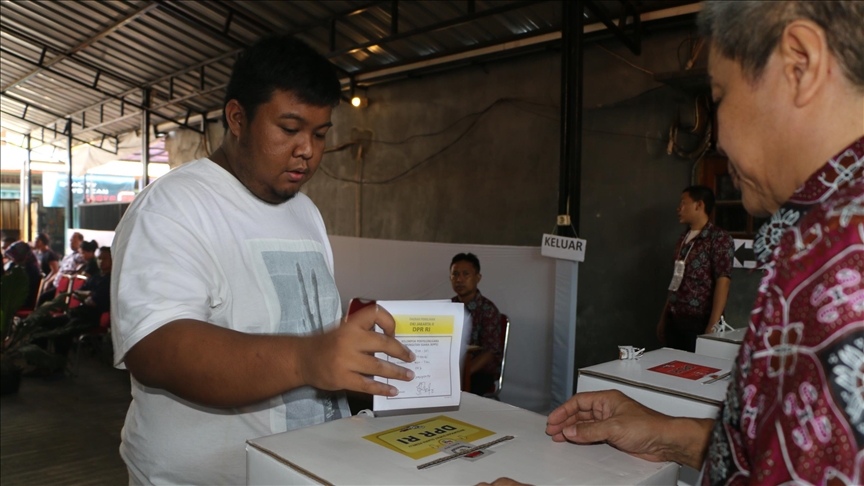- Local polls represent the first political challenge for Prabowo Subianto, who took over as president in October
- Prabowo is seeking ‘full support’ to make sure he can deliver on the big promises he made in his presidential campaign, says political researcher Effendi Gazali
ISTANBUL
Indonesia on Wednesday will hold simultaneous local elections across 548 regions, including 37 provinces, 415 regencies, and 93 cities.
Spread across more than 17,000 islands with three different time zones, voting will begin at 7 a.m. (0000GMT) and close at 1 p.m. (0600GMT). More than 204 million people are eligible to vote in the elections, most of them in provinces on the island of Java.
This year marks the first time Indonesia is conducting local elections – held once every five years – simultaneously in all regions, following a new law passed in 2022.
Every voter will cast two ballots on the day, one for a governor and the other for either a mayor or a regent, while vote counting will continue until Dec. 16.
The polls represent the first political challenge for Prabowo Subianto, who took over as president in October, succeeding long-time leader Joko Widodo, popularly known as Jokowi.
Jokowi’s son, 37-year-old Gibran Rakabuming Raka, is now Prabowo’s vice-president, and the duo are seeking a strong showing in the local polls to cement their power.
Victory in these elections would give the new government a crucial hold in local politics, which could prove make-or-break in just how successful they are implementing their policies.
‘Prabowo feels he needs full support’
Prabowo, a former military general, has a 109-member Cabinet, a reflection of the cross-party support that he garnered in Parliament.
Among the parties contesting these elections are Prabowo’s own Gerindra Party and others that have backed him, such as the Golkar Party, National Mandate Party, Indonesian Solidarity Party, and the Prosperous Justice Party.
In the fray will also be the Indonesian Democratic Party of Struggle (PDI-P), Jokowi’s former party that is now the only de-facto opposition force in Indonesia.
The president “wants the candidates that he supports or those from his own party to win these elections,” Effendi Gazali, a senior political researcher based in the capital Jakarta, told Anadolu.
“Prabowo feels he needs full support to enhance the big programs he spoke about during his (presidential) campaign.”
He said the president is approaching these elections feeling “a serious need to grow his party and the areas in which his party members win the local elections.”
Both Prabowo and Jokowi have been active in the runup to the elections, endorsing candidates in battleground areas such as Jakarta and Central Java.
According to Gazali, Jokowi has “actively supported” some candidates and “even came and paraded in certain areas,” showing just how much importance the former and current presidents are attaching to the polls.
Soon after handing over the presidency to Prabowo, Jokowi moved to his native city of Solo in Central Java.
He will “do everything to win the Central Java local election,” said Gazali.
Central Java is the home base of the PDI-P, which “promoted” Jokowi from mayor of Solo to governor of Jakarta and later elected him as president, he added.

